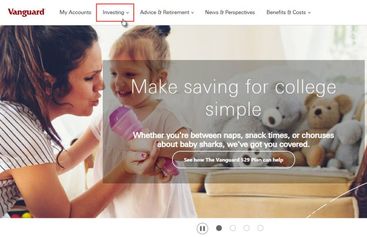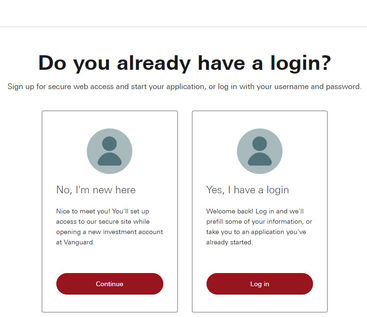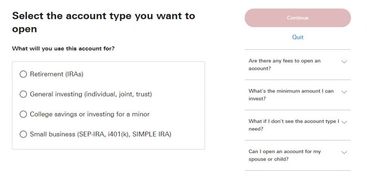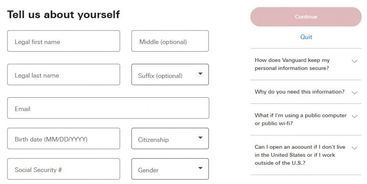Investing can be a complicated venture, with lots of uncertainty. It can also fundamentally change your money future for the better. Being smart and strategic with a long term focus is generally the touted advice, but it gets a little murkier as you wade into the specifics. Whether you’re already a knowledgeable investor, or you’re researching to make your first step, there’s always something to learn. This guide to investing in VOO will help you feel cool and confident as you work on your investment portfolio. This post was written by our amazing staff writer, Lindsey Smith!
Similar articles:
What is VOO?
VOO is Vanguard’s S&P 500 exchange-traded fund, or ETF. It’s a passively managed index fund through Vanguard that trades on the stock market like a stock, and follows the S&P 500 Index. That’s a lot, so let’s break it down a little more. Let’s start by breaking down what an Exchange-Traded Fund is.
What is an Exchange?
An exchange is just the shortened way we say stock exchange. This is either a physical location or an online platform, and it functions as a market for buyers and sellers to trade shares and other financial products. There are stock exchanges all over the world:
the New York Stock Exchange,
the NASDAQ,
and the London Exchange...just to name a few.
All these exchanges do is provide a fair and standard way to trade things like stocks, commodities, and bonds. Exchanges have been portrayed as really complex or even scary, and while there is a certain language and deeper complexities to it, as an investor you really just need to be aware of them as a place to match up buyers and sellers of financial assets.
Related:
What is a Fund?
The most basic definition of a fund is a pool of money that’s been set aside for a specific purpose. Think of all the kinds of funds you encounter on a daily basis but may not give a second thought to.
Governments have funds to build roads or keep people safe.
Colleges have funds they use to pay for scholarships.
The average person has funds, like an emergency fund, which is simply money set aside for use in an emergency.
There are a lot of funds out there that are created with the purpose of making money. These are called investment funds.
Like all funds, they’re created with a specific objective in mind. First, as we said, to make money, but the vehicle for making that money is as varied as the universe.
As an investor, you can find a fund for just about anything.
Do you want to invest in clean energy? There’s a fund for that.
How about health care? There’s a fund for that too.
Maybe you don’t know exactly what you want, but you just want a little bit of everything, guess what? There’s a fund for that, too.
There are two main reasons investment funds are so popular among investors.
First, when you pool your money together, investors are able to buy into a variety of investment options that may not be possible as an individual.
Second, having your money spread across a wide array of investments allows for the diversification of risk.
Read more:
What is an ETF?
An exchange-traded fund is simply an investment fund that can be bought on a stock exchange, just the same way you could buy shares of any other company that’s listed on a specific exchange. As we discussed, there are different funds for just about everything. And they all offer different levels of diversification of risk.
For example, a fund that tracks the entire S&P 500, or the top 500 companies on the US market, would offer more diversification than one that only focused on a specific sector, like health care. In a hypothetical situation, if the healthcare sector were to take a huge hit, your investments would all be performing poorly, whereas if a healthcare company listed on the S&P 500 were to take a hit, it would just fall off the list and be replaced with the next company in line, causing very little disturbance to your overall return.
You can generally buy an ETF from any brokerage or retirement account, and there’s no requirement that you have to purchase directly from the fund company.
What is VOO and How is it Different from Other Funds?
So, now that you understand ETFs, what exactly is VOO? The objective of VOO is to track, or mimic, the return of the S&P 500 index.
What is an Index?
An index is just a method of tracking the overall performance of a group of assets in a standardized way, and the S&P 500 index is widely regarded as the best gauge of how the US market is performing. It’s the weighted average of the top 500 companies in the US. Indexes have become an investment vehicle, most notably in the form of index funds and ETFs (like VOO).
The index itself gives you information on how a group of assets performs, and the index fund allows you to actually invest in them. By investing in VOO you are literally buying into the 500 biggest companies listed in the US. Index fund ETFs are a passive investment. There is no active manager making buy and sell decisions who you have to pay large fees to. It’s set up fairly automatically, and it simply tracks what the underlying index is doing.
How is the VOO ETF Different From a Mutual Fund or Index Fund?
There are some differences between mutual funds, index funds, and ETFs, and it might inform the way that you invest. Unlike other mutual index funds, VOO (an ETF) is traded all day long on the stock market, and the price listed at the time you buy it is the price you pay. I bet you’re wondering...
Can I buy fractions of VOO?
What if I don’t have enough for a full share?
Don’t worry too much about the individual share prices, you’re able to buy fractional shares. Just concentrate on the amount you’re investing, and make sure it meets any minimums that might be set by your brokerage or retirement accounts.
The VOO ETF vs. Mutual Funds
VOO tracks the top 500 companies in the US, where other mutual or index funds track the entire market, including small, medium, and large cap companies. In this way, a mutual fund might be more diverse, but with slightly more volatility, than a fund that tracks only the top 500 companies.
To illustrate this point, consider that VOO has around 509 holdings, where VTI (Vanguard’s Total Market Index Fund) has over 3,000 holdings. Having shares of only the top 500, however, can almost guarantee a good performance over the long term. As we’ve said you can purchase mutual funds for just about any specific sector that you want.
VOO’s equity sector diversification is listed on the Vanguard website, broken down by percentage. This can help you visualize the amount you’re putting into each sector, and hopefully make you feel good about that level of diversity. You can also have a look at the holdings for VOO, where you’ll see how much of each of the 500+ companies you’re actually investing in.
For example, if you invested $100, and VOO holds 6% of Apple, you’re investing $6 into Apple. These can vary among the different S&P 500 ETFs so it’s something to look at, if you so choose, before you invest.
Is There a Fee to Buy VOO?
The final reason these index fund ETFs are so popular among investors is the fees. When it comes to fees you’d have to pay for a mutual fund, a large portion of your total fees are going to the management costs. These cover the cost of having a fund manager or fund management team that is actively making investment decisions on what to buy and how to buy it.
However, an index fund ETF like VOO, there’s no need to pay thousands of dollars to big fund managers because all the fund needs to do is invest in the 500 biggest companies, and it does so fairly automatically.
As a result of this, index funds have much lower fees. VOO has an expense ratio of just 0.03%, phenomenally low, and will save you thousands over the length of your investment. Keeping fees in mind, it’s important to do your research on what investment platform suits you best.
We love Vanguard because it’s owned by the people who use the platform to invest. You can feel secure knowing any decisions they make will benefit you, because they make money when you make money. This also creates some of the lowest fees out there. For that reason we’ll assume you’re using the Vanguard platform to purchase your VOO shares.
How Do I Invest in VOO?
First, if you haven’t already, you’ll need to open a Vanguard account.
How to Set Up a Vanguard Account
1) Go to www.vanguard.com. From the main page, find the tab at the top that says “investing”. Click that tab, and at the bottom of the page you’ll see “open an account”. Click to open a new account.2) Now you will answer a few different questions about your financial journey and what your goals are with your investments.

3) Next, they'll want to know how you’re going to fund your account. Most of us will use a checking account of some kind, so click “electronic bank transfer or other Vanguard account”.

4) This will take you to a page where you will be asked to confirm you don’t have another Vanguard account. Click no (unless you do).

5) Now they will give you a list of things you’ll need for the next step.
You will need a bank routing number,
your bank account number,
and your current employer’s name and address.
They need this information legally, so even if you’re self-employed, use your address or P.O. Box associated with your business.
6) When you click through, you’ll be asked what type of account you want to open. This is not set in stone. Once you open an account with Vanguard, you can add different types later. So pick whichever is your primary interest, whether it’s
retirement,
general savings,
education, or
small business.

7) Once you choose your type of account, they’ll ask what the goal for your money is. For most of us, it’s just growth and income. It will also ask where the source of the income is coming from for these funds. Again for most, retirement or general savings, but you can easily pick the option that best fits your financial situation.
8) The next screen is where you’ll fill out all your personal information. You’ll need to fill out your name, address, social security number, birthday, email, citizenship - all your basic information.

9) The next screen is the part that will take a couple days when you’re first setting up your account. This is where you’ll put in your bank routing number and your bank account. Vanguard will then, within a business day or two, put two transfers into your account. They will be for amounts less than a dollar each, just two random deposits. This is how they make sure they have the right bank account for the right person. Once you see these deposits in your account, you’ll go back to your Vanguard account and put those two amounts in. Now your bank account is set up with Vanguard.
10) The last step in setting up your account is to review what you’ve done so far, and sign some documents with e-sign. And ta-da, now you have your account - time for the fun stuff. Let’s invest!
How to Invest in VOO - Step by step Instructions
1) Head to www.vanguard.com, click on the “investing” tab, and then “account type”. This is where you’ll choose which type of account you’ll use.
2) On the next screen, you’ll find two important parts: the settlement fund and then your investments.
The settlement fund that Vanguard uses is the Vanguard Federal Money Market Fund. It’s just like a savings account, with returns of less than 2%. There are reasons you might keep money in the settlement account that we’ll go over below, but this is a different account than your investments.
After you put money into the settlement fund you have to do the second step and move that money into investments.
3) To add your money, you need to go to the top and click on “buy and sell”, then towards the bottom you’ll click “contribute to” and choose whichever investment account you previously chose (for example “contribute to IRA”).
If you’ve chosen an account like an IRA, this will also show you your contribution limits for the year and how much you’ve already contributed thus far.
4) Now you can add whatever funds you’d like. This is where you’ll choose VOO.
5) Once you’ve added the fund you want, you’ll see a box beside that fund. You can put the money into your settlement fund, or VOO.
Budget how much to invest using our monthly budget template and other personal finance products.
Sidebar: Why would you choose to put it in the settlement fund?
You can use it as a sort of hub where you put all the money you’re investing, and then from there you can distribute it to each investment portfolio you have. Another might be that you’re not ready to invest in something particular, but you want to invest that money when you are better prepared. Another reason might be that you aren’t quite to the minimum investment yet (we’ll go over that below), so you’re just parking the money there to grow until you reach it.
6) Next click the box that says “Vanguard S&P 500 Exchange-Traded Fund”, and then fill out how much you’re going to contribute.
7) Now it will ask you where you want those funds to come from. You’ll see a couple of options.
The already-linked checking account,
the settlement account,
or it will give you the option here to add another bank account.
Choose whichever you need.
8) Then, review and submit. And you’re done. It will take a couple of days for the banks to do their thing and move the money, but as far as your part in all of it, you’re done! Note: Once you have your account up and running, you can set all of this up to operate automatically. On a specific day each month, the system can take a certain amount out of your account and put it right into VOO, if that’s what you want. This is a great option because it saves you all of those steps, and the money never has to go through you. Your money grows without any effort on your part.
Is VOO a Good Investment?
Overall VOO is a great investment, and though there are some drawbacks, they have their solutions too. Here are the pros and cons of VOO that you can use to make the best possible decision for you.
Pros of VOO
VOO is Passively Managed
As we talked about above, it’s an ETF that tracks the top 500 companies in the US. There’s little question as to whether the investment will perform well, because it’s always just tracking the top 500. If a company takes a massive hit for whatever reason, it falls off the list and is replaced with the next one down. There’s very little volatility here and it will generally trend up.
Now, an actively managed fund has one fund manager, and their job is to pick the things that go inside the fund, as well as the percentages of each. They bring companies into the fund, they get stocks out of the fund, and try to get you the most growth possible. They also have huge fees to pay the fund managers.
Passively managed, on the other hand, doesn’t need to do this, because the amount of the stock that’s in the fund is just a representation of how big the company is. The bigger the company, the greater the impact it will have on the index fund. This all boils down to the fact that you will be getting a piece of the best companies in the US at any given time, for the lowest possible fees. More money in your pocket.
Vanguard is a Great Company
Vanguard is a company with a great reputation, especially among “regular people” investors, and is popular in the FIRE (Financial Independence Retire Early) community. It’s not publicly traded, so there are no outside investors they need to please.
In fact it’s owned by its own funds, and who invests in those funds? Us, the investors. As Vanguards’ funds go up, they benefit and we benefit. You can feel comfortable because when they make decisions about their fees, or funds, or just make changes, you know it’s strictly for our benefit. This is also how they keep their fees so low.
VOO Volatility is Very Minimal
The top ten companies in VOO change very little. They may jockey for position within the top 10, but they’re pretty much just doing their thing. When one falls off, another one is usually on the rise, and takes their spot. And with VOO following the top 500 performing companies in the US, you can be assured that no matter what companies take those spots, they’re all performing well.
With individual stocks, you have to worry about the volatility of the stocks going up and down. You also are at the mercy of that particular company’s behavior. They could be performing extremely well for some years, and then something could happen, there could be a scandal or some other major problem, and the stock drops to 0 and you’re out of luck. With VOO you have assets that include several sectors, that you know are performing at the top of the market.
Cons of VOO
VOO Lacks Diversification
Diversification of stocks means that you have some kind of stock from all the different sectors of the market. You want a little bit of international exposure, real estate, stocks, and bonds. VOO is strictly a stock index fund, there is no direct exposure to international markets and bonds.
However, because VOO follows the biggest companies on the market, and some of the companies are the largest in the world, you get something called “indirect exposure” to international markets. If you look at the top 10 companies in VOO, you might see Apple, Microsoft, Amazon, Facebook, Google, and VISA.
These companies all make money in the international markets. Of course, you need to decide for yourself whether that’s enough exposure to make you feel comfortable. In addition to VOO, you can pick up an international index fund, and Vanguard also offers a Total Bond Index if you want to invest there as well.
How to Invest in VOO - Are You Ready?
So, now it’s time for you to set up your account and start investing in VOO. Was this post helpful? You now know how to invest in VOO! If you need to know more, ask your questions in the comment section below!





.jpg)



